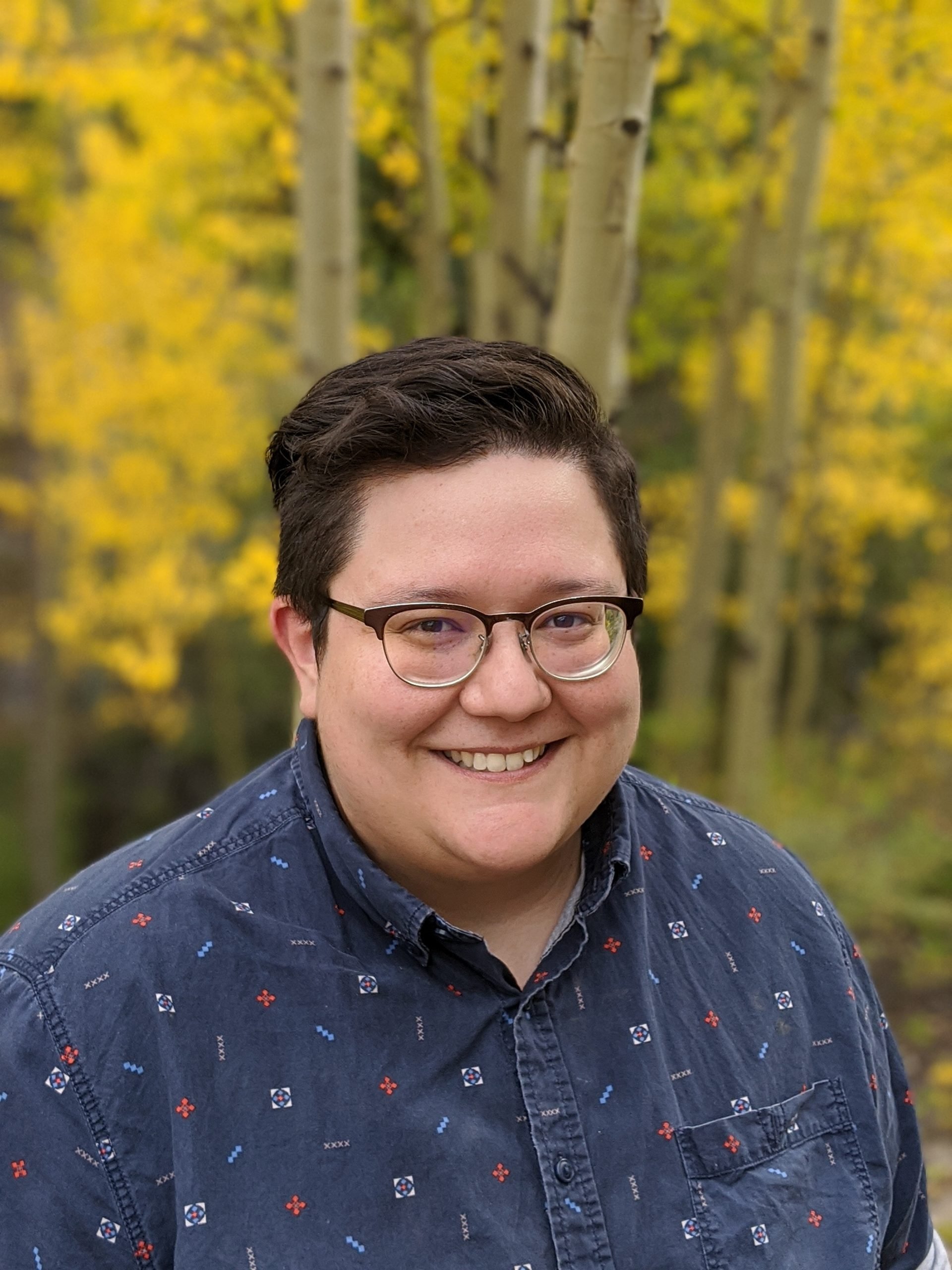"Where does a spork fit?"
By Katelin Champion (she/her), member of the Juniper Formation Leadership Team
This story is a part of our ongoing series called Stories of Faithful Resonance.
My wife and I have, what I like to call, complimentary ADHD. She likes to clean, I like to plan. She’s typically late because of time-blindness, I’m usually 30-40 minutes early due to being unable to focus on anything except leaving for “the thing.” We have learned each other’s pitfalls and we try to make sure the other person remembers to drink water every day. It’s a match made in heaven. Dare I say, she completes me.
But by no means is our marriage perfect. We still have to sit face-to-face and talk out our issues like anybody else. And there’s one area in particular where our opposing neurodivergencies can create a bit of tension. When it comes to organizing, there seems to be two main camps of ADHD methodology. In Camp One, you shove it somewhere; anywhere it will fit. When you need it, you’ll find it. In Camp Two, you have to remove every item in the place where it belongs and re-organize the entire system to be sure everything fits categorically. Amanda is Camp One, I am Camp Two, and let me tell you — Dishes. Are. Death.
You may think, “No way, every dish has a place! Plates with plates, cups with cups… what’s so hard about that?” Well, we’re hipster millennials — half of our cups are jars and the other 79% are mugs.
Moreover, we live in a small, one bedroom apartment: we have few cabinets and three whole drawers in the kitchen. Real estate is competitive. Where does Tupperware go? What about baking dishes? How about the small army of coffee tumblers? Oh, and don’t forget the entire IKEA aisle of cooking utensils. Also, knives. Unsheathed, very sharp knives.
Luckily, by mathematically exhausting the iterations of how things can fit in our small space, we’ve landed on a few constants. The main one being: all drawers are miscellaneous drawers. Yes, all *~ three ~* drawers. Frankly, this is a welcome relief to our lifestyle—we don’t want to spend precious brain power having to make serious decisions like “Where does a spork fit?”
Seriously, where does a spork fit?
In our miscellaneous utensil drawer, we have an “organizer” for spoons, forks, knives— tiny spoons, chopsticks, drink stirrers, and metal straws. We made four compartments into eighteen. The rest of the drawer is a shove-it-in-there-and-smoosh-it-until-the-drawer-closes zone. Oh, and also, there’s-my-credit-card-ooo-look-gum land. In this very adult, responsible, easily accessed drawer, where would you put a spork?
In our world, everyone is so incredibly unique. From the foods we eat growing up, the traditions we have around holidays, to the secret languages we speak with our chosen or blood families, no two humans are alike. But we spend a lot of energy separating and categorizing humans into boxes: religions and beliefs; skin color or country of origin; weight, height, perceived health; differently-abled, mentally ill, queer, poor, educated… And every category has its place—whether that’s a place to be or a place to not-be.
When I look around in my current life stage, I know I’m in places where I “don’t belong.” How do I know? Because nobody looks like me: a queer-identifing, half-Mexican, gender non-conforming, cis, lesbian woman. Because people in these spaces probably don’t know most of the words in that last sentence. Folks around me right now don’t read stories about people like me in the media. They don’t seek out movies or read books about people like me. The people I see day-to-day think my jokes are funny because they’re surprising; they’ve never heard someone talk like me.
I know I stick out, even though I try to change my language and make myself fit so others are more comfortable. I’m a spork in the back of a silverware organizer.
Often, the places where sporks don’t belong and the space the Church occupies is a venn diagram that deeply overlaps. This overlap has made it difficult to reconcile what I believe with the community that represents those beliefs. That community doesn’t look like me, doesn’t sound like me, doesn’t get my jokes — but more importantly, it’s never tried to. For me, it’s been an institution that you assimilate into, or watch from the outside. You go in the back of the silverware organizer, or you find a different drawer.
And to be clear, I’ve never wanted the Church to become “queer” for me to fit in, I’ve just wanted the the Church to leave room for me to be queer. And from my experience, there is no room.
Sometimes I’m a spork because I’m half Mexican and look very white. Sometimes I’m a spork because I love my wife. Sometimes I’m a spork because I’m in my mid-thirties and I’m in grad school. Sometimes I’m a spork because the way humans are treated in this country makes me angry and sad.
But I know any day of the week, my spork-self belongs at Juniper Formation—the ultimate miscellaneous drawer.
At JF, as we lovingly refer to it, there is no mold to fit into. We start from the outside, from the marginalized. Instead of a weekend project or a reason to donate, your experience and personhood is valid and valued. You speak for yourself and the community listens. Or you can listen, nobody is going to make you talk. At JF, we love sporks, chopsticks, lighters, packs of gum — we also love knives, forks, spoons, and spatulas. We’re all just kitchenware in a kitchen-world trying to make the next dish a little better so we might as well work together, right?
To support Juniper Formation, make a donation. Whether it is a one-time donation, recurring monthly, or an annual gift, we appreciate your support of our people and ministries that live out our mission of prophetically reimagining the Church from the margins.

